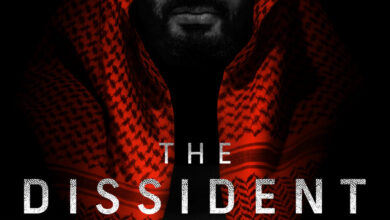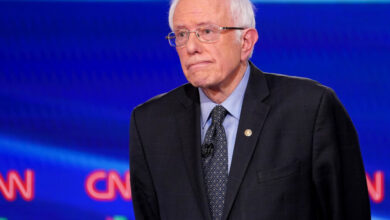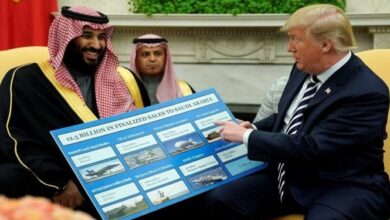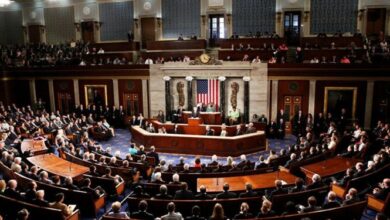‘Writing is on the wall’ for Saudi-Israel peace
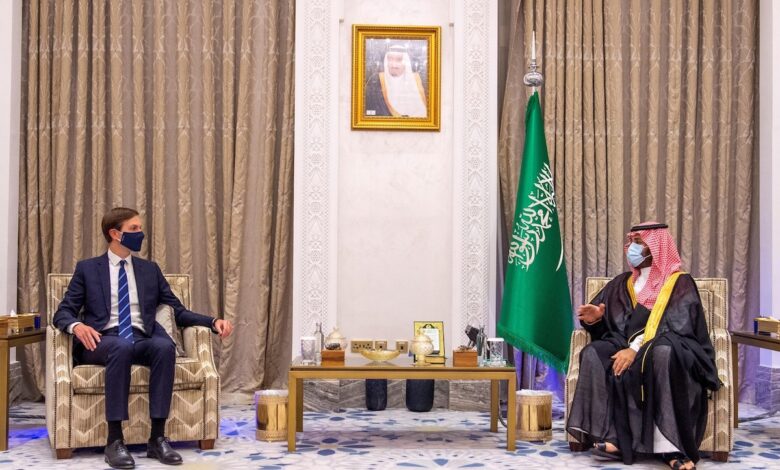
When the Crown Prince of Bahrain and the Foreign Minister of the United Arab Emirates meet with Israeli Prime Minister Benjamin Netanyahu at the White House on Tuesday, they will not only be inking normalization accords, they will be setting the stage for an even bigger prize: peace between Israel and Saudi Arabia.
“Bahrain would have never done this without Saudi approval, so the writing is on the wall,” said Carlos Abadi, managing director of the US-based financial advisory firm Decision Boundaries and a longtime activist for improved ties between the Arab world and Israel.
“I’ve been supporting peace efforts for a long time and been frustrated for a long time. And finally I got my payday,” said Abadi, who will attend Tuesday’s signing at the White House.
The timing, he says, is linked to the US elections and the preference by the two Arab parties for Donald Trump and his maximum pressure campaign against Iran. But the architect of the deals, Abadi believes, was President Trump’s Middle East point man, Jared Kushner.
“He had the latitude to offer certain things to these countries that would have been uncertain in his absence. For example, the sale of advanced weaponry,” he told Asia Times.
Kushner has been lobbying his generational counterpart, Saudi Crown Prince Mohammad bin Salman, to press his father, the king, to conclude a similar deal with Israel before the end of Trump’s first term.
King Salman, while supportive of his son’s vision, appears to have not been ready to personally oversee the abandonment of longstanding Saudi policy, namely the Arab Peace Initiative offered to Israel by his predecessor King Abdullah in 2002, and which had the support of every Arab state.
King Salman, born in 1935, was 12 years old when Saudi Arabia voted against the partition of Palestine at the United Nations in 1947. He would have witnessed Saudi troops being sent to fight against Israel the following year and as recently as the Yom Kippur war in 1973, when he was in his late thirties.
During the Yom Kippur war, Saudi King Faisal deputized Salman – then governor of Riyadh – to raise money from the royal family to support the Palestinian resistance, Bruce Riedel pointed out in a Brookings paper.
A peace treaty between Israel and Saudi Arabia “is going to happen,” said Abadi, but only after the 84-year-old king passes away or is incapacitated.
What King Salman was willing to support was an agreement with Bahrain, a Gulf island nation of 1.5 million people that is connected to Saudi Arabia by bridge and whose foreign policy is widely understood to be in lockstep with its powerful neighbor.
Trump expressed enthusiasm for the Saudi role days before the signing, telling reporters that King Salman was a “great gentleman”.
“This is now the second peace agreement that we have announced in the last month, and I am very hopeful that there will be more to follow. I can tell you there’s tremendous enthusiasm on behalf of other countries to also join,” Trump said on Friday.
A ‘game changer’
The Middle East deals come two months before the US presidential election, earning Trump goodwill from supporters of Israel on both sides of the aisle in Congress. For Israel and the Arab states, the pacts are seen by proponents as a game changer.
“From the Israeli side, it is a huge step in what has been the longstanding goal since the creation of the state: to be accepted in the region,” said Abadi.
“I think that it’s going to develop a lot of good will between Israel and the UAE, which is going to lead to potentially very fruitful exchanges,” he added, referring to the Emirates as the “knowledge hub” of the region.
Both countries, he says, have encouraged the entry of talent – in the case of the Emirates from around the Arab world and Asia, and in Israel by Jews from the former Soviet states. In this way, he said, “they are not so different.”
“I think historians will look back on these two peace agreements as the beginning of the end of the Arab-Israeli conflict,” said Brian Hook, who served as special representative for Iran and senior policy adviser to Secretary of State Mike Pompeo until last month, on Friday.
James M Dorsey, senior fellow at the S. Rajaratnam School of International Studies in Singapore, says the official recognition of Israel by Bahrain and the UAE shows that Israel’s existence is “no longer the issue, as such” in the Arab world.
“That train has left the station,” he told Asia Times. “The question is, on what terms do you deal with Israel? That’s the real argument.”
The United Arab Emirates, he says, may have a point that the longstanding strategy of land for peace has failed.
“That doesn’t mean the opposite is true, that recognition opens doors. But the Palestinians saying they’re being betrayed and losing a trump card. Well that trump card wasn’t worth anything. You can hold onto it till the end of time but it’s not doing anything for you.”
The Saudis holding off on official ties with Israel, despite longtime intelligence and technology relations, Dorsey says, can be partially attributed to the generational divide between the King and the Crown Prince.
But the Bahrain deal nonetheless offers an insight into the long-term Saudi vision.
“They want to be seen as not being opposed to it,” said Dorsey. In other words, Riyadh wants to show that official relations with Israel are “not beyond the realm of their thinking, even if it’s not something they can do now.”
Ignoring public opinion
Not lost on Middle East observers is that both of the Kushner-shepherded deals have been concluded with absolute monarchies, who are some of the most avid consumers of its surveillance technology.
“When Israel’s ‘diplomatic progress’ depends upon normalizing relationships with Arab dictators, it follows that democracy in the Arab region would be a severe diplomatic setback for Israel. Israel’s regional ally is dictatorship,” said Iyad al-Baghdadi, a Palestinian activist who was himself deported from the UAE in 2014 following vocal support for Egyptian anti-government protesters.
Prominent voices loyal to the United Arab Emirates authorities last month suggested that those protesting the “Abrahim Accords” with Israel would not be tolerated.
“If you see anyone (inside the UAE, citizens or expats) violating Emirati moral regulations such as promoting antisemitism, disrespecting the UAE decisions or its leadership on social media, REPORT to Attorney General office via official App of the [Public Prosecutor],” tweeted Hassan Sajwani, a pro-government personality with nearly 90,000 followers.
There has been no public opposition from the tightly-monitored Emirati populace to the deal.
The people of Bahrain – a Shiite-majority citizenry who rose up against the Sunni monarchy in 2011 – have been comparably vocal in their opposition.
On Twitter, the hashtag, “Bahrainis against normalization” was trending over the weekend, revealing sentiments of frustration and despair. “At this point, How do we overcome this great downfall?” one Bahraini woman tweeted.
On Saturday night, Bahraini activists took to the streets in a video purportedly filmed in an unidentified area of the country, holding Palestinian flags and carrying signs reading, “No, no to normalization.”
“The notion that Palestine is an issue of the past in public sentiment is a fallacy, and what polling has been done in the Gulf, including in Saudi Arabia, shows that,” said Dorsey, alluding to private polling commissioned by the office of the Crown Prince.
“So he knows,” Dorsey continued. Yet a key difference between MBS and his father has in recent years become apparent: “The Crown Prince chooses when he wants to ignore public opinion.”
Source: Asia Times

